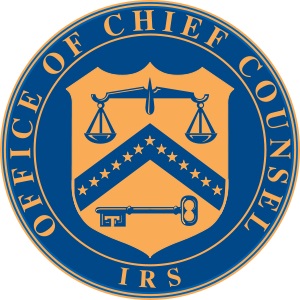Originally published on Forbes.com.
The pain of penalties from improper activities can be significantly reduced when the penalties are tax deductible. Code Section 162(f) provides that deduction will not be allowed “for any fine or similar penalty paid to a government for the violation of any law”. An anonymous corporation, let’s call it Briber Inc (BI), was looking for slack on that rule, but they were turned down by the Chief Counsel in CCA 201619008.
Corrupt Practices
BI is a US corporation with a foreign subsidiary that is treated as a disregarded entity (DE). DE’s executives and employees falsified books and records to cover up things of value given to government officials. There were not adequate internal accounting and financial controls to detect and prevent corruption-related violations under the Foreign Corrupt Practices Act. There are about two paragraphs worth of details redacted. I’m sure they would make this post much more entertaining.
BI entered into a consent decree with the SEC to pay a disgorgement of profits from its FCPA violations. Part of the deal was that they could not consent to the penalty while denying the allegations. Then there was an agreement by DE with DOJ consenting to the filing of a Criminal Information and the paying of a monetary penalty for which no tax deduction could be taken. The fine on DE that was paid by BI caused a dollar for dollar reduction in the disgorgement penalty on BI.
BI focused on the disgorgement penalty
Taxpayer asserts that the disgorgement payment was intended “as a compensatory or remedial measure” and not to “penalize or punish” it. Taxpayer cites to Stephens for the proposition that “ompensatory payments generally `return the parties to the status quo ante.’” Taxpayer then argues that the payment returned Taxpayer to the status quo ante and, therefore, should be deductible. Taxpayer also asserts that the intent of the parties in calculating the disgorgement clearly shows a desire to prevent unjust enrichment, not to punish Taxpayer.
The Chief Counsel’s response is that disgorgement can be primarily compensatory which makes it deductible or primarily punitive, which makes it non-deductible under 165(f). The scales in this case seem to tip towards punitive.
In the instant case, we think the absence of certain facts is determinative. Here, there simply is nothing indicating that the purpose of the disgorgement payment was to compensate the United States Government or some non-governmental party for its specific losses caused by Taxpayer’s violations of the FCPA. Consequently, we think the disgorgement payment is not deductible pursuant to section 162(f) because the payment was primarily punitive.
Who Is Bribers Inc?
I like to try to penetrate the redaction in these rulings and I may have gotten close, but I’m not going to or even give you the links that I found. What you need to do is go into the ruling and take blocks of text (a sentence or two) and google it. Give it a try and see what you find. I think it is the computer company, but you can let me know your thoughts.
Other Coverage
This ruling did not light up the tax blogosphere. I only found one article, but it is from a very high-class source – the Washington National Tax Office of Grant Thornton. IRS: certain disgorgement payments not deductible is authored by David Auclair and Sharon Kay. I often remark to my covivant, much to her chagrin, how much I loved Grant Thornton, so it pleases me that they also singled out this somewhat obscure ruling for attention. Of course, as Montgomery Clift said to Donna Reed in From Here to Eternity, speaking of the Army – “Just because a man loves a thing, doesn’t mean it has to love him back.”
And breaking here. It turns out that Timothy Todd also covered the ruling.































































































